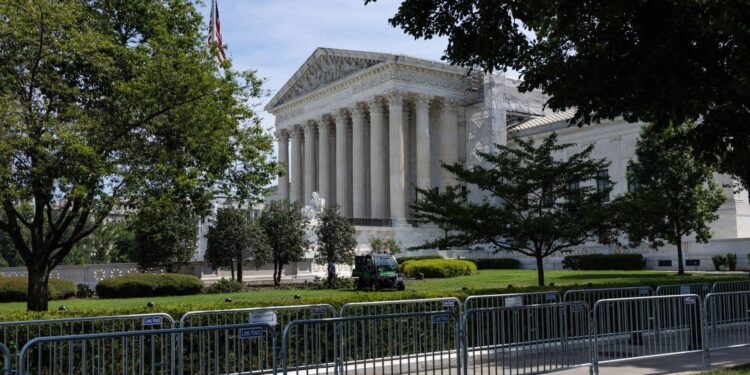The US Supreme Court on Thursday rejected the validity of a compensation agreement of some $6 billion in the opioid crisis on the grounds that it exempted the Sackler family, owner of the Purdue laboratory, from any future lawsuits from victims.
The Court ruled by a majority of five votes to four. The Department of Justice criticized this agreement, concluded in 2022 with the 50 American states, local communities and individual victims and validated by a federal appeals court, for protecting the Sackler family from any future prosecution, including victims who did not consent.
“The Bankruptcy Code does not authorize (…) immunization from lawsuits without the consent of the affected plaintiffs,” writes Neil Gorsuch on behalf of the majority, joined by three other conservative judges and one progressive.
The Sacklers are accused of having aggressively promoted their pain medication OxyContin for years while being aware of its highly addictive nature. The sale of this product brought them tens of billions of dollars.
Overprescription of the opioid is widely considered to be the trigger for the crisis that has killed more than half a million people in the United States over 20 years.
Billions “siphoned”
Targeted by an avalanche of lawsuits, the Purdue pharmaceutical laboratory declared bankruptcy in 2019 and has since negotiated a plan, the latest version of which provides for its closure by 2024 in the United States for the benefit of a new entity and the payment of ‘at least $5.5 billion over 18 years.
The Supreme Court suspended this agreement in August at the request of the government.
During the debates in November, the nine judges showed themselves to be unusually torn, balancing between the risk of compromising the victims’ compensation, and that of recognizing a court, in a bankruptcy case, the right to immunize the Sacklers against future prosecutions.
If the Justice Department’s bankruptcy trustee, who is challenging the deal, “wins his case, the billions of dollars earmarked for opioid prevention and compensation will evaporate and creditors and victims will be left with nothing.” , argued the laboratory’s lawyer, Gregory Garre.
His colleague representing the victims who signed the agreement, Pratik Shah, also considered it “irresponsible for the bankruptcy trustee to suggest that there is some sort of secret alternative to obtain compensation”, affirming that “without the “exemption, the plan will disintegrate.”
“We say there are other opioid victims who have also suffered tragic harm who say they do not consent to having their rights forcibly extinguished,” government attorney Curtis Gannon responded.
The Justice Department said the Sacklers “siphoned” some $11 billion from the company in the years before it declared bankruptcy in 2019.



